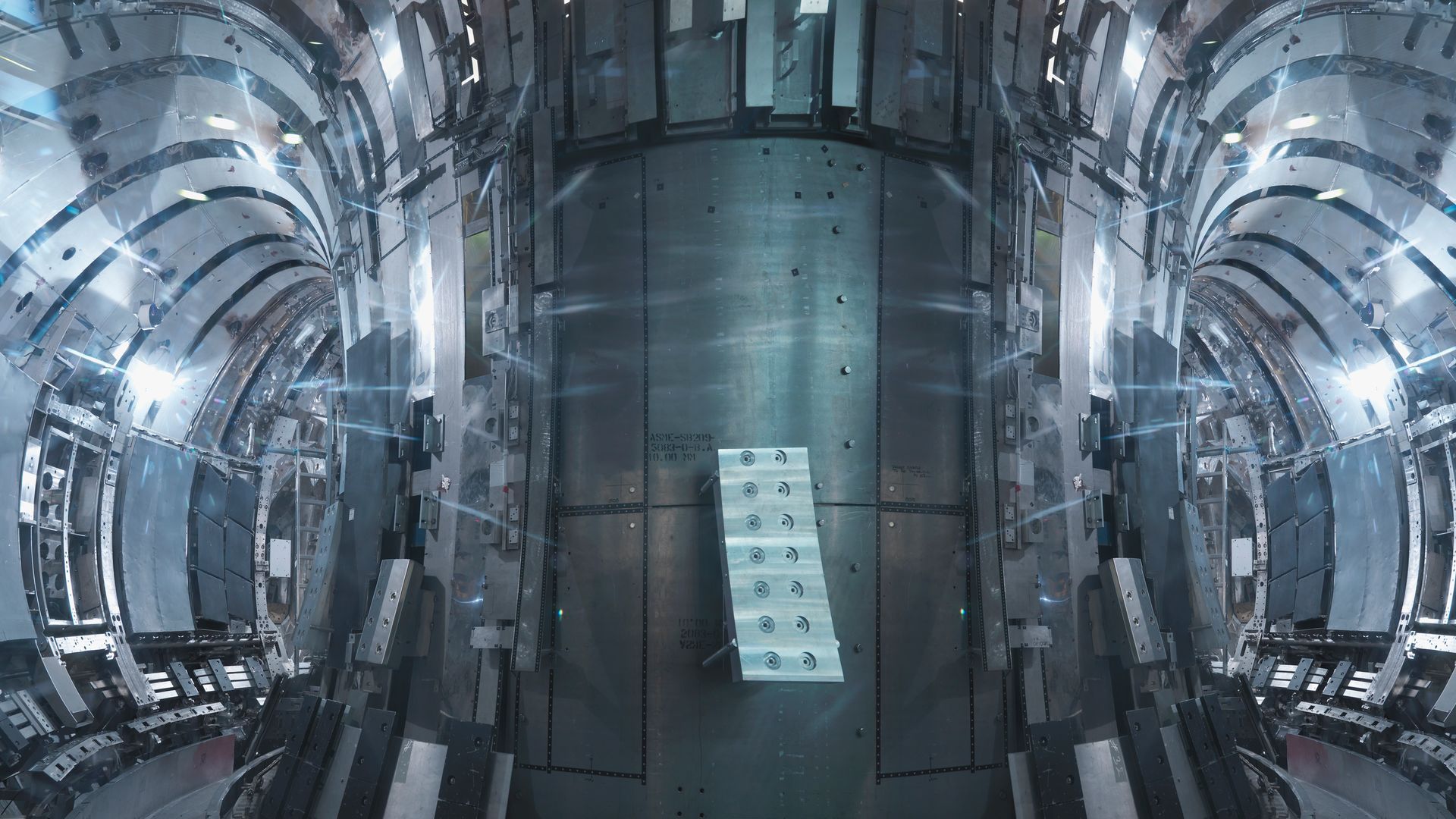
[JACK AYLMER]
AS MEMBERS OF THE EUROPEAN UNION DEBATE WHETHER THE FUTURE SHOULD INVOLVE RENEWABLE OR NUCLEAR ENERGY, A NEW SOURCE IS EMERGING THAT’S BOTH.
NUCLEAR FUSION, WHICH USES THE SAME ENERGY AS THE SUN.
BILLED AS THE ENERGY OF THE FUTURE.
RIGHT NOW, FRANCE IS SUPPORTING THE NUCLEAR ENERGY OF THE PRESENT. ATOMIC. WHICH SUPPLIES 70 PERCENT OF THE COUNTRY’S POWER. AND IT’S URGING OTHERS TO DO THE SAME.
SO FAR, 12 OTHER COUNTRIES HAVE JOINED THEM.
IN A STATEMENT RELEASED MONDAY, THE COUNTRIES ASKED OTHER EU PARTNERS TO RECOGNIZE THE IMPORTANCE OF KEEPING NUCLEAR ENERGY INNOVATIONS IN
THE MIX, SAYING:
“THIS MOMENTUM MUST NOW BE CONVERTED INTO A COMPREHENSIVE AND ENABLING EUROPEAN FRAMEWORK FOR NUCLEAR DEVELOPMENT, EXPLORING ESSENTIAL POLICIES DIMENSION AND FINANCING.”
PART OF THAT MIX MAY INVOLVE ARTIFICIAL INTELLIGENCE.
PRINCETON ASSOCIATE PROFESSOR EGEMEN KOLEMEN SAYS AI IS ALREADY BEING USED TO FIX INSTABILITIES BEFORE THEY HAPPEN IN THE EXPERIMENTAL NUCLEAR FUSION PROCESS.
[EGEMEN KOLEMEN]
SO, WHAT IT DOES IS IT’S LOOKING AT ALL THE HISTORICAL INFORMATION THAT IT HAS AND JUST ITS DATA. AND IT’S TAKING THAT DATA AND BASED ON THAT DATA IT’S SAYING, OH SOMETHING IS DIFFERENT HERE, SOMETHING IS DIFFERENT THERE. WE MIGHT GET SOME SORT OF INSTABILITY. SO, THEN WHAT IT DOES IS BY ITSELF DECIDES AND TAKES ACTION ON HOW TO ADJUST THE PLASMA.
[JACK AYLMER]
FRANCE IS HOME TO AN INNOVATIVE NUCLEAR FUSION PROJECT KNOWN AS ITER, OR IN LATIN “THE WAY.”
FUSION-FOR-ENERGY TOUTS IT AS “THE WORLD’S BIGGEST EXPERIMENT ON THE PATH TO FUSION ENERGY.”
IT’S NO COINCIDENCE THAT FRANCE IS ALSO A PROMOTER OF AI.
THE TWO-ARE-NOW LINKED HAND-IN-HAND.
THERE’S JUST ONE PROBLEM.
THE EU MAY SOON BE HOME TO SOME OF THE STRICTEST AI REGULATIONS ON THE PLANET.
GOVERNMENTS OF EU NATIONS APPROVED LEGISLATION IN EARLY FEBRUARY FOR A SET OF LAWS TO REGULATE ARTIFICIAL INTELLIGENCE. NOW, THE LAW NEEDS FINAL APPROVAL BY ONE OF THE EU’S THREE LEGISLATIVE BRANCHES, WHICH IS EXPECTED TO HAPPEN IN APRIL.
THE ACT WOULD BAN SOME AI USES AND CREATE RULES FOR THOSE DEEMED HIGH- RISK.
IT’S YET TO BE SEEN HOW THE REGULATIONS WILL BE ENFORCED ON AI’S ROLE IN FUSION.
KOLEMEN BELIEVES ONE OF THE BIGGEST HURDLES IS FIGURING OUT HOW IT WILL BE REGULATED ONCE IT IS COMMERCIALIZED.
HE SAYS ONCE-PERFECTED FUSION IS AN ESSENTIALLY LIMITLESS POWER SOURCE.
AND HE BELIEVES AI IS CRUCIAL TO UNLOCKING THAT POTENTIAL.







